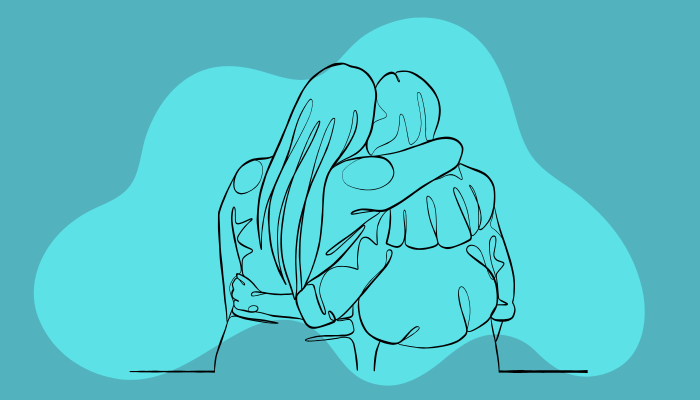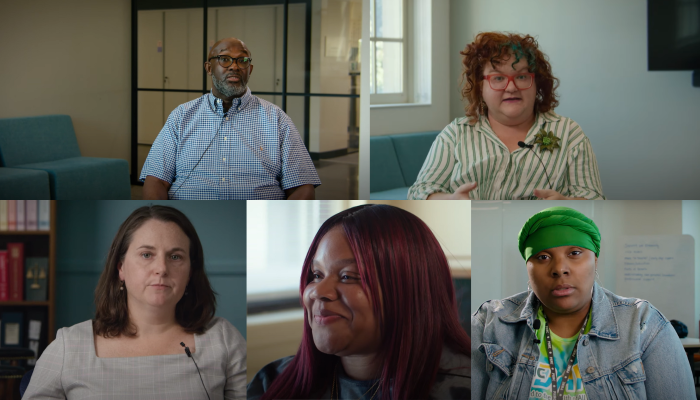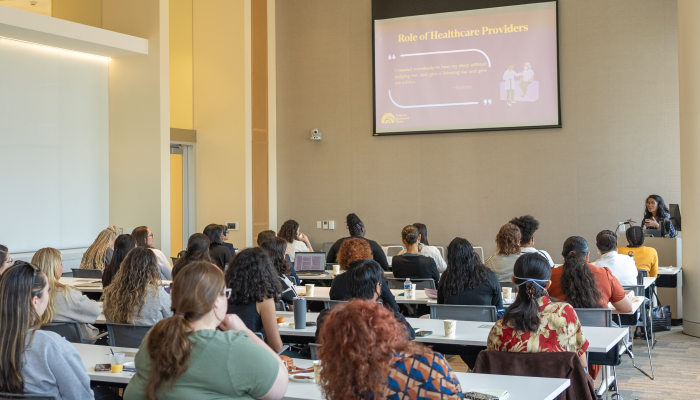Sexual violence can impact anyone, no matter their gender identity or sexual orientation. Some people assume sexual assault is an issue faced only by girls and women,but sexual assault also impacts 1 in 6 boys and men. “Traditional masculinity can create barriers to accessing care both internally and externally,” says Joey Brodsky, the Healthy Masculinity Coordinator at WOAR: Philadelphia Center Against Sexual Violence. “Broadening our idea of survivorship to include all genders is essential to breaking cycles of harm that lead to continued violence in our homes and communities.”
Myths about male survivors
There are a lot of harmful myths surrounding rape, sexual assault, and abuse. It is important to understand what is and isn’t true, so we can better support survivors.
| MYTH: Men and boys who experience sexual violence don’t face the same mental and physical effects as women. | FACT: Male survivors can face the same effects of sexual assault as other survivors. Some of these effects can be depression, flashbacks, Post-Traumatic Stress Disorder (PTSD), substance use, panic attacks, and more. |
| MYTH: More men would come forward with experiences of sexual violence if they were really that common. | FACT: It can take an average of 20 years for male survivors of childhood sexual abuse to disclose what happened to them. Survivors of all genders may face barriers that delay coming forward. |
| MYTH: Sexual abuse determines sexual orientation or gender identity. | FACT: A person’s sexual orientation or gender identity cannot be caused by sexual abuse or assault. It is not the reason for or the result of sexual abuse. |
| MYTH: Most sexual abuse of boys is perpetrated by gay men. | FACT: Most sexual abuse of boys is not perpetrated by gay men. Perpetrators can be any sexual orientation or gender. Someone’s identity does not make them more likely to hurt someone else. |
Supporting Male Survivors
Stigma for male survivors, as Brodsky explained, “might look like someone fearing they will be seen as less of a man for experiencing sexual violence, or it might look like someone not being believed when they disclose.” Here are some ways we can all support someone who shares their experience of sexual assault or abuse:
- Listen and validate their experience. It is hard for many survivors to disclose harmful experiences. Show that you care by giving your undivided attention and validating how they are feeling. This can be as simple as “I believe you” or “I’m so sorry you experienced that. It’s not your fault.”
- Do not ask for the details of the assault. A survivor may willingly share the specifics of the assault with you. If they choose not to, then refrain from asking questions about details.
- Offer support. Survivors may blame themselves. Remind them that no matter what, this experience was not their fault. Emphasize that they did nothing to deserve this.
- Ask them what they need. A survivor might not know what they want to do yet, and that’s okay. Ask them what they need from you at this moment, “I really appreciate you trusting me with this. What can I do to help you?”
- Check-in periodically. Everyone’s timeline for healing is different. Remind the survivor that you still care about them and their wellbeing.
Resources
If you or someone you know needs immediate help, call or text WOAR: The Philadelphia Center Against Sexual Violence’s free and confidential 24/7 hotline at 215-985-333.
There are resources out there for male survivors of adult or childhood sexual assault or abuse.
- WOAR: The Philadelphia Center Against Sexual Violence offers a Men’s Group for those who experienced sexual violence as a child or adult.
- Rape, Abuse, and Incest National Network (RAINN): A national organization that provides a free, confidential 24/7 sexual assault hotline at 800-656-HOPE or chat online.
- 1in6: A national organization that offers free support services for male survivors through support groups, anonymous chats, and trained advocates. Read stories from male survivors through their Bristlecone Project.
- Male Survivor: An online healing community for men who have experienced sexual assault or abuse. They provide online support forums, webinars, support groups, a therapist directory, and more.




